With the world moving faster than ever before and technology taking over, the environment began to suffer. If we do not protect the environment now, future generations may not have much to enjoy and explore.
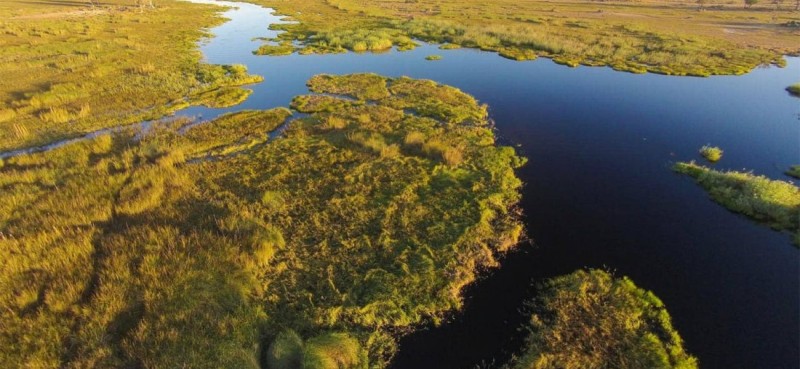
As a result, eco-friendly safaris have become a new trend for how people enjoy their safaris to help preserve the environment. Among the options, a Botswana safari is a popular choice.
What is an Eco-Friendly Safari?
The main focus of an eco-friendly safari is to preserve the environment and reduce the carbon footprint of the traveller. A significant factor of an eco-friendly safari would be the lodges that make use of local produce.
Many Botswana safari lodges would have their own gardens from which they grow their own edible produce or purchase it from nearby local farmers. This supports the local community and lessens the carbon footprint of the transport of goods, including the fuel used.
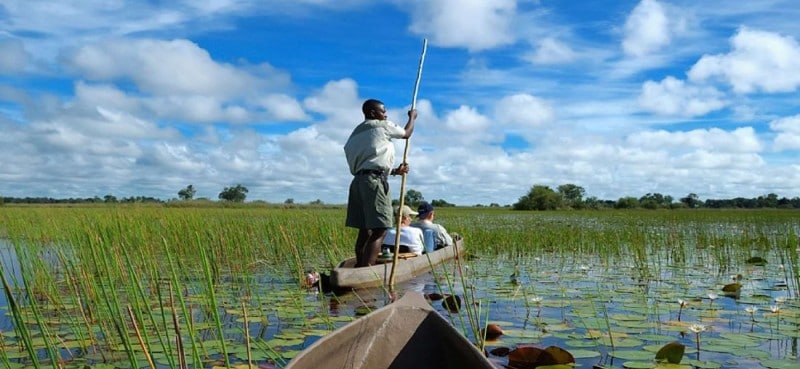
The product includes edible products and often extends to crafted soaps, blankets, and other handmade products used in the lodges.
Generating electricity for camps also often has a significant impact on the environment. But in Africa, the sun is an excellent source of daily living, and there is plenty of sunlight to go around.
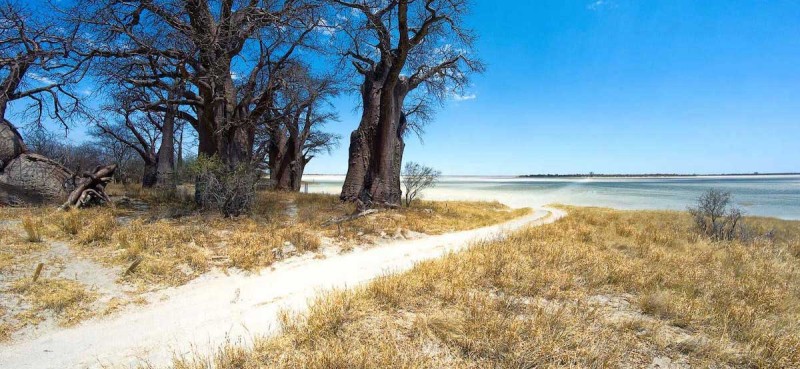
Solar farms have been installed at lodges, and they are starting to include electric safaris vehicles and boats to preserve the environment even further. Except for the benefits to the electric vehicles’ environment, it makes for a more enjoyable Botswana safari with quiet engines out in the bush.
Which Areas in Botswana Support Eco-Friendly Safaris
With most camps in Botswana being in relatively remote locations, most camps throughout Botswana are eco-friendly camps.
The newer camps are a little more than others, as technology is forever changing and easier to apply from the building phase. However, as camps are upgraded often, adjustments are made.
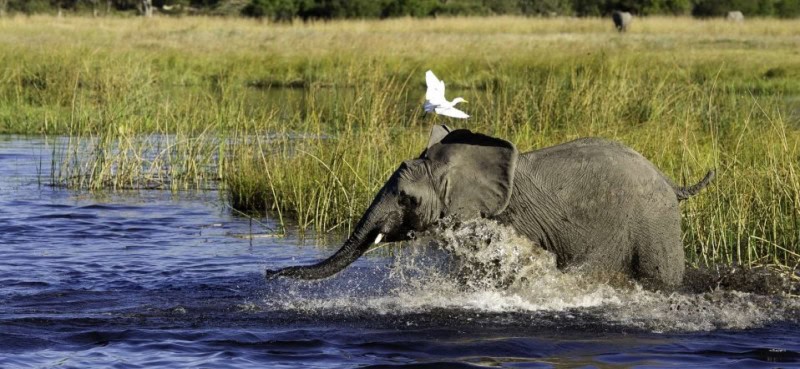
The more popular route for Botswana safari would include a visit to the Chobe National Park or Savuti area and then a few nights in the Okavango Delta and often spilt with a few nights in the Moremi Game Reserve.
Travellers with a little more time would also include a visit to the Makgadikgadi Pans and the Kalahari on their Botswana Safari Holidays. You would be able to include an Eco-Friendly lodge in your itinerary if you visited all of these areas.
Eco-Friendly Lodges in Botswana
Should the Chobe National Park be your first stop on your safari, the Chobe Game Lodge would be an excellent option for an eco-friendly lodge on a Botswana safari. They have received one of the highest levels of certification for ecotourism offered by the Botswana Tourism Board.
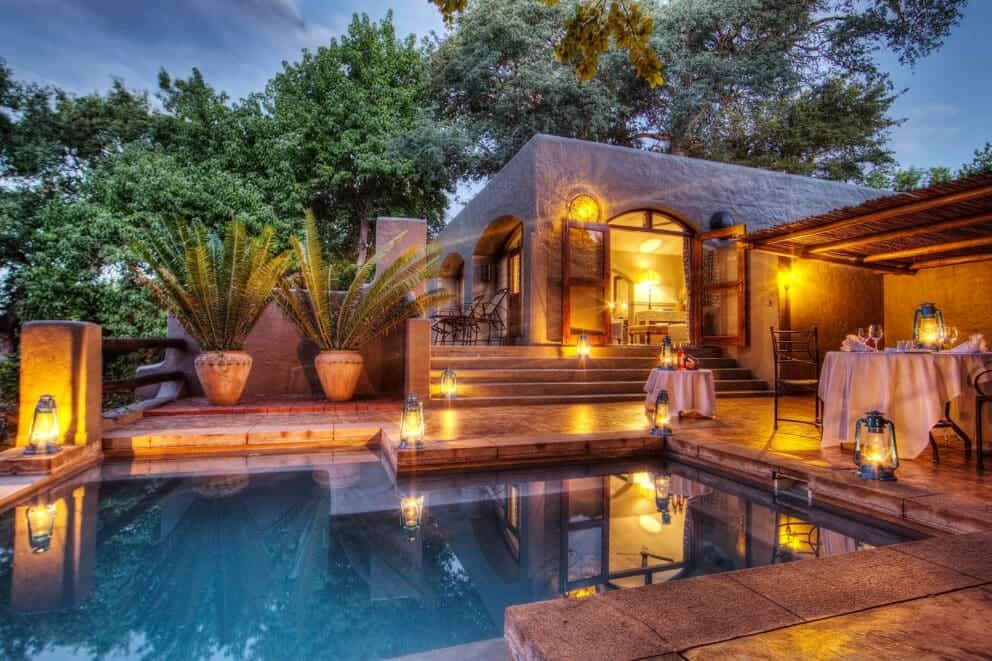
Some of their projects include viewing decks made from recycled timer plastics; only about 5% of their waste is safely disposed of in a local landfill site and have 100% electric operated game vehicles.
Travelling a little further south along the Savuti Channel, Ghoha Hills Savuti Lodge is not to be missed. This lodge is fully operational on solar power, and the rest of the Botswana safari lodge is kept as eco-friendly as possible, down to the guest amenities in the rooms.
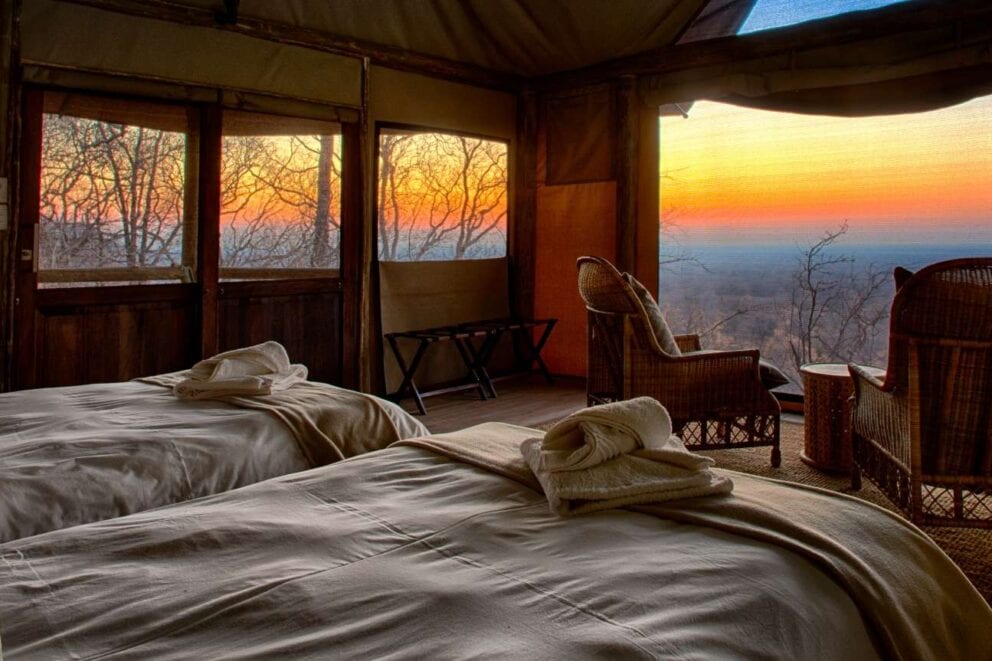
For a visit to the famous Okavango Delta, a great camp selection would be Sanctuary Chief’s Camp. Although a solar farm also powers this camp, the camp is designed and run so that should the camp be packed up and moved, there would be no trace of it ever being there.
They are also involved in projects to protect the rhinos from poachers and initiatives to support the local communities.
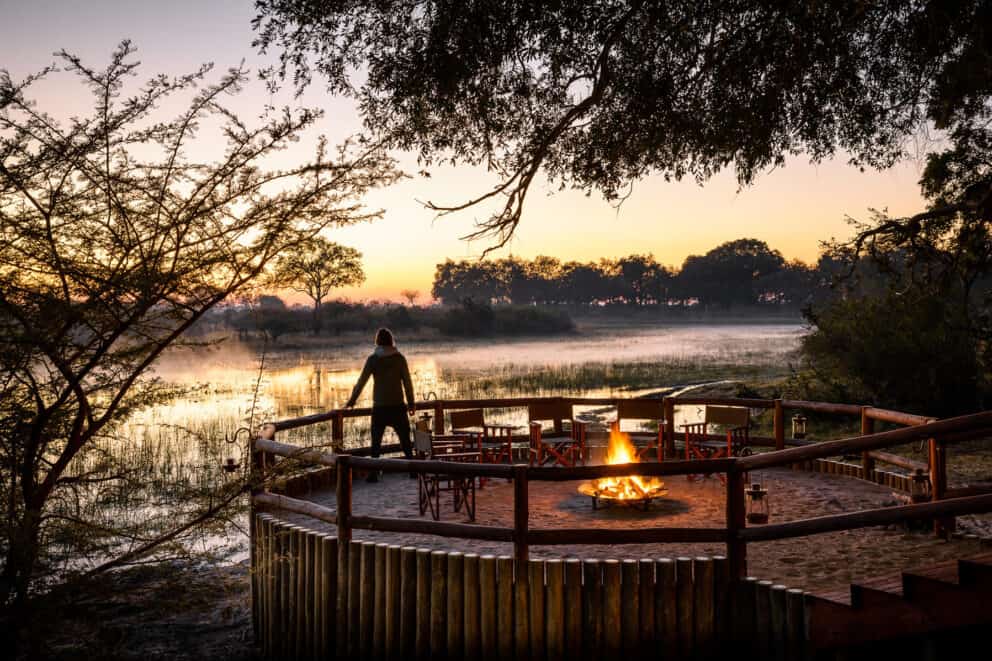
The Makgadikgadi Pans, known for their open spaces situated in the middle of the dry savanna. Here, Meno a Kwena would be the ideal camp for an eco-friendly camp.
This camp has an exceptionally low carbon footprint as they have dispensed all the luxuries and focus on conservation. Solar energy adds the complete “off the grid” fee. The camp, however, is still very comfortable and relaxing – a great addition to any itinerary.
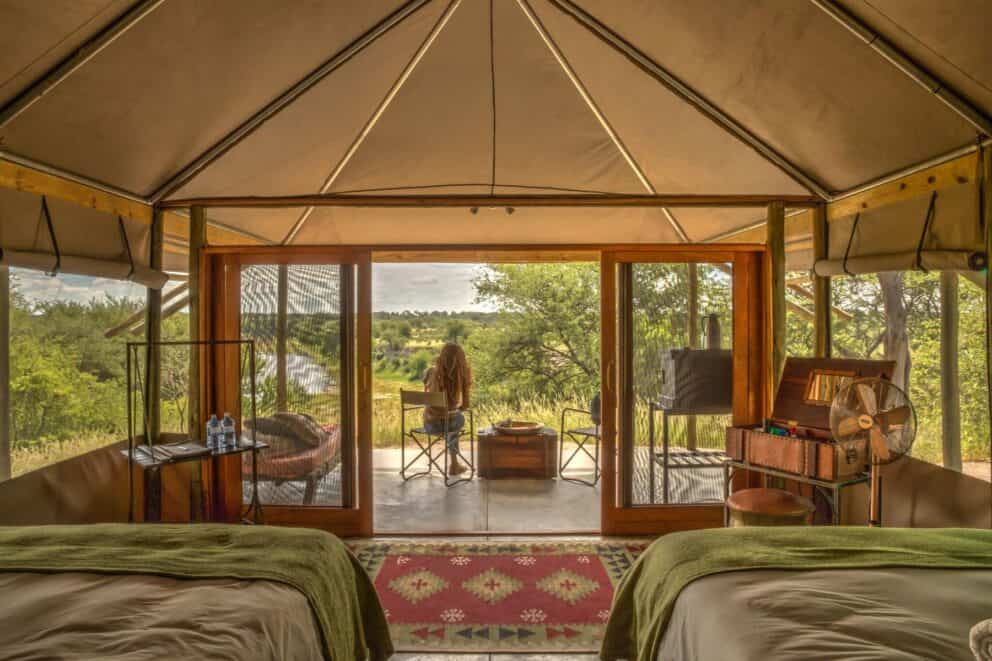
Planning your next Botswana safari would not have to impact the environment, and the only footprints that stay behind would be those of the elephants walking through the bush!






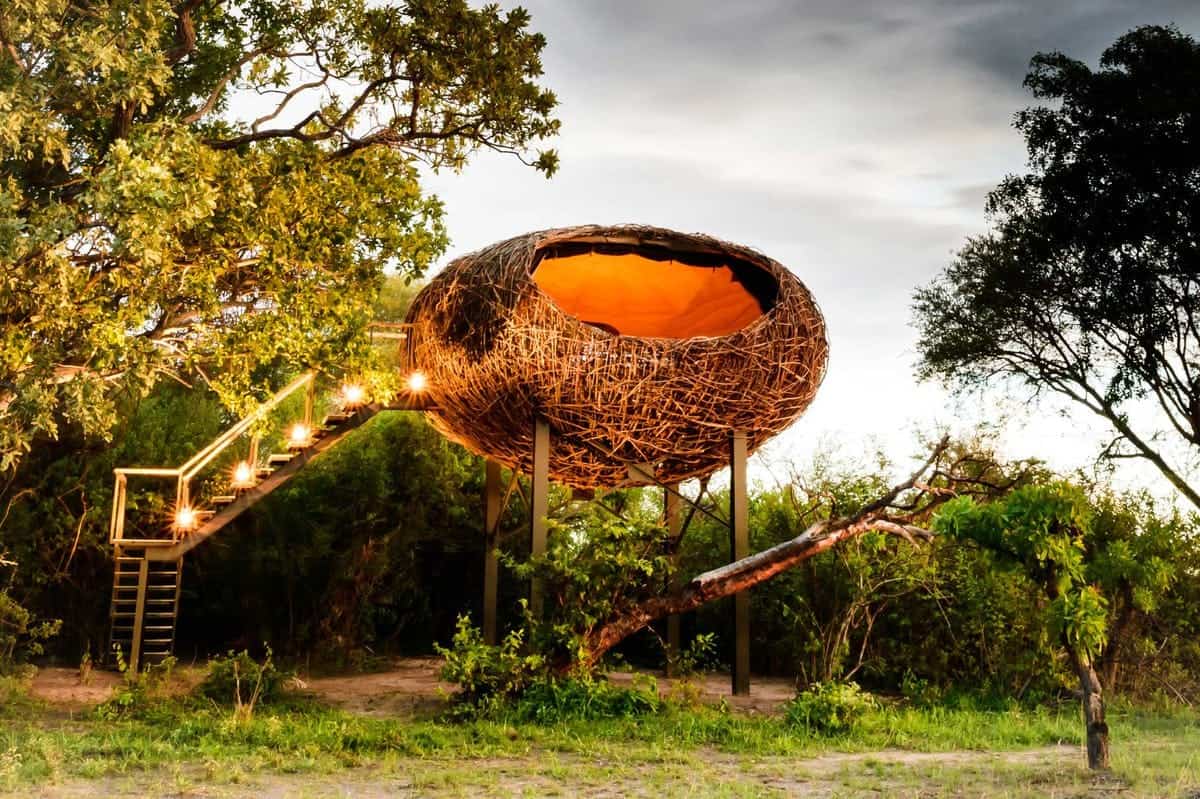
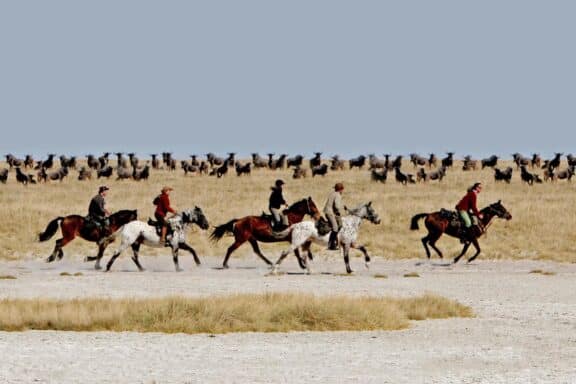
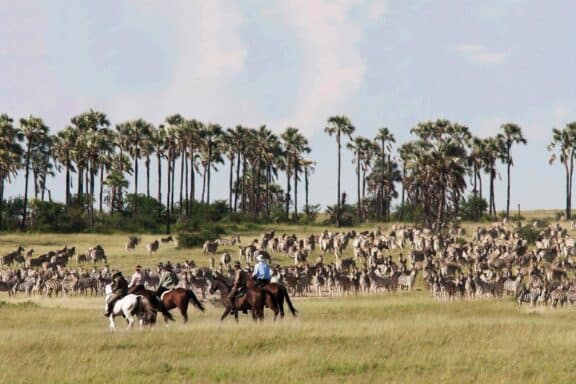
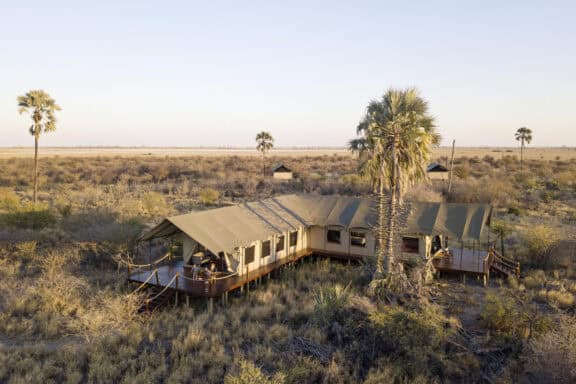
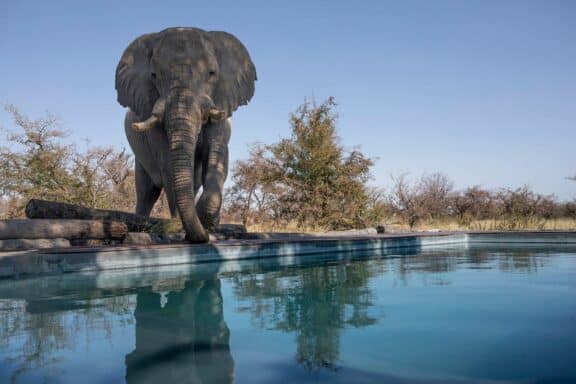

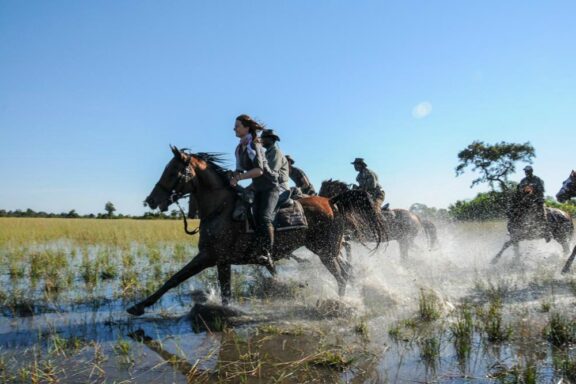
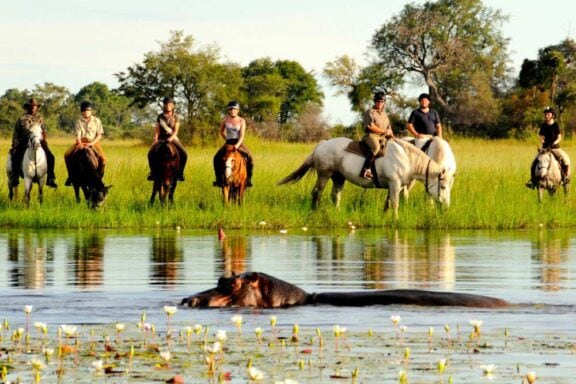
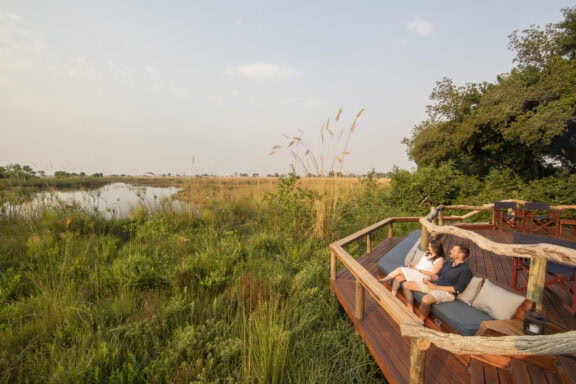
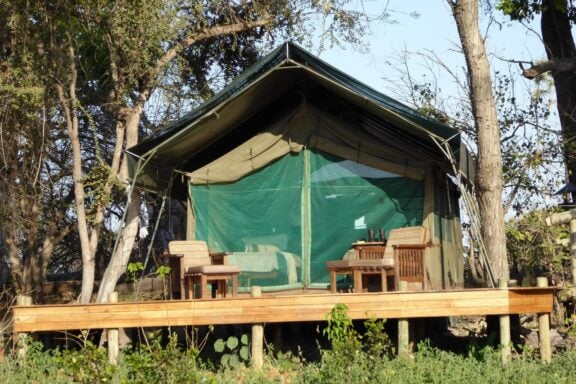
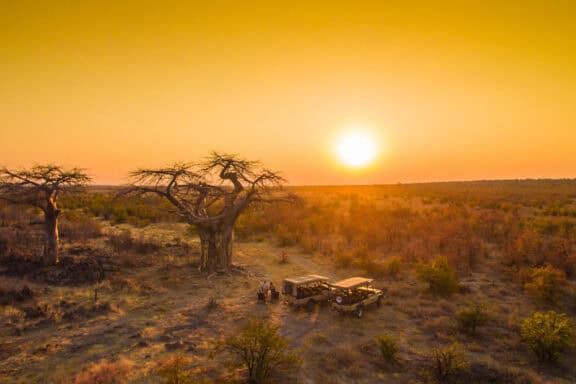
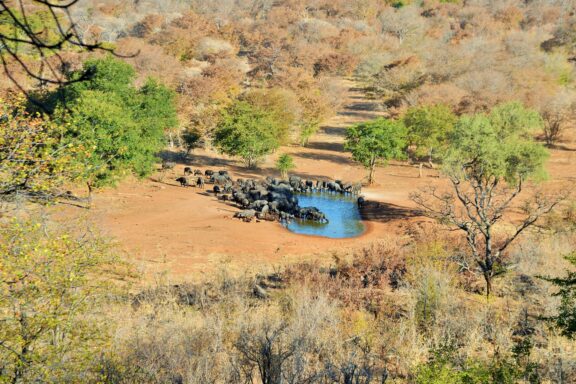

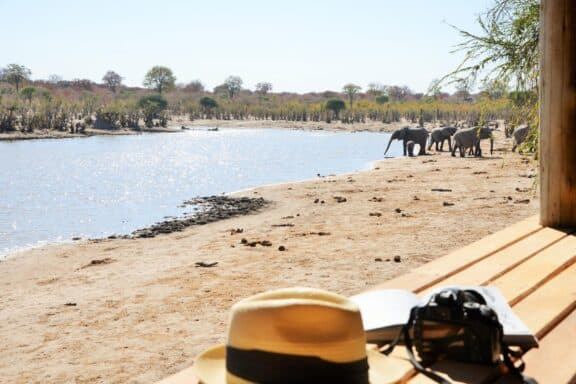


 Blog List
Blog List













Written by Tiffany Bowers
• Travel Writer
Verified by Devryn Panaino
• Africa Safari Expert
Part of the Botswana Safari Collection